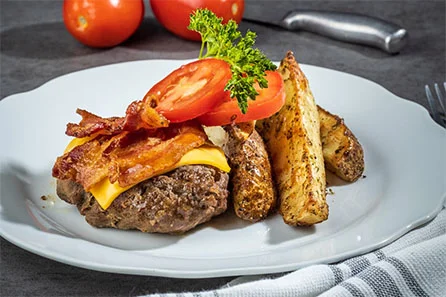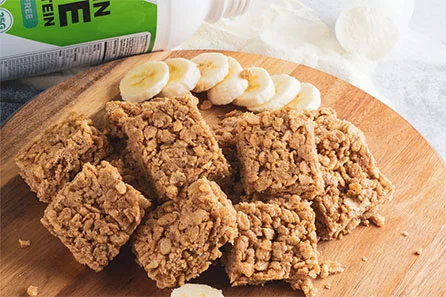When it comes to weight loss, the key is to create a calorie deficit. A calorie deficit occurs when you consume fewer calories than your body needs, allowing it to break down fat and convert it into energy. To maintain this Calorie Deficit, it’s important to watch what types of food you are eating.
Some foods can sabotage your Calorie Deficit and cause you to struggle to achieve your weight loss goals. High-calorie, processed foods like candy, chips, and fast food should be avoided. Instead, focus on eating whole foods such as lean proteins, fruits and vegetables, healthy fats, and complex carbohydrates like oatmeal or brown rice. These foods are nutrient-dense, low in calories, and will help you stay full longer.
Additionally, it is important to plan your meals ahead of time and portion out the proper amounts so that you don’t over indulge. This will help ensure that you stay on track with your Calorie Deficit goals.
Are you looking to lose weight and create a Calorie Deficit? If so, there are certain foods that should be avoided and others that should be included in your diet. In order to maximize the Calorie Deficit and ensure successful weight loss, it’s important to know which foods will help you reach your goal. This article will discuss what foods to watch out for while on a Calorie Deficit and provide strategies to ensure you reach your goals.
What is Calorie Deficit?
A Calorie Deficit occurs when you consume fewer calories than your body needs. This leads to weight loss by forcing the body to rely on stored fat for energy. In order to maximize the Calorie Deficit and ensure successful weight loss, it’s important to know which foods will help you reach your goal. By avoiding certain high-calorie and processed foods, while incorporating nutrient-dense whole foods into your diet, you can maintain the Calorie Deficit and achieve your desired weight loss.
Foods to Avoid During Calorie Deficit
When it comes to creating a Calorie Deficit, there are certain foods that should be avoided. High-calorie, processed foods like candy, chips, and fast food should be avoided as they can quickly add up in terms of calories. Additionally, those who are looking to lose weight should avoid sugary drinks, fried foods, and processed meats. All of these foods can quickly take away from the Calorie Deficit and sabotage your weight loss goals.
Foods That Can Help You Reach Calorie Deficit Goals
There are certain types of food that can help you reach your Calorie Deficit goals. Focus on eating whole foods such as lean proteins, fruits and vegetables, healthy fats, and complex carbohydrates like oatmeal or brown rice. These foods are nutrient-dense, low in calories, and will help you stay full longer so that you don’t over indulge and consume too many calories. Incorporating these types of nutrient-dense foods into your Calorie Deficit meal plan can help you reach your desired weight loss goals.
Meal Planning Strategies for Calorie Deficit
Creating a Calorie Deficit is an effective way to lose weight. When it comes to foods that should be included in your Calorie Deficit meal plan, focus on nutrient-dense whole foods like lean proteins, fruits and vegetables, healthy fats, and complex carbohydrates. Additionally, steer clear of high-calorie processed foods like candy, chips, and fast food. By avoiding these types of food and incorporating nutrient-dense options into your Calorie Deficit meal plan, you can achieve your desired weight loss goals.
Tips and Tricks for Calorie Deficit Weight Loss
Maintaining a Calorie Deficit is key for successful weight loss. Here are some tips and tricks to help you reach your goals:
- Track your food intake - Tracking your calories can help you ensure that you are staying within the Calorie Deficit. This can help keep you accountable and on track with your weight loss goals.
- Meal prep - Meal prepping can help make sticking to the Calorie Deficit easier. Plan out your meals in advance, so that you are less likely to indulge in unhealthy temptations or over eat throughout the day.
- Eat nutrient dense foods - Focus on incorporating nutrient dense whole foods into your Calorie Deficit meal plan. This includes lean proteins, fruits and vegetables, healthy fats, and complex carbohydrates like oatmeal or brown rice.
- Don't skip meals - Skipping meals can lead to overeating later on in the day. Make sure to incorporate regular meals throughout the day that are within your Calorie Deficit to help you stay on track with your weight loss goals.
- Drink lots of water - Staying hydrated is important for anyone trying to lose weight. Drinking plenty of water throughout the day can help keep you full and energized, while helping prevent overeating or snacking too much.
ProMeals & Your Calorie Deficit Journey:
If you need help creating and planning a Calorie Deficit meal plan, ProMeals offers two options to choose from; a la carte and a meal plan subscription service. With these services, you can easily create Calorie Deficit meals that are tailored to your specific weight loss goals. Whether you select the a la carte or meal plan option, ProMeals will make Calorie Deficit eating easier and more convenient. With their help, you can reach your Calorie Deficit goals in no time. Start your journey today and get on the path to a healthier lifestyle!
ProMeals Calorie Deficit calculator:
With the help of ProMeals Calorie Deficit calculator, you can figure out what Calorie Deficit works best for you and begin your journey to a healthier lifestyle. Visit our calorie calculator tool today to start your Calorie Deficit weight loss journey!
Good luck and happy Calorie Deficit meal planning!
No Better Time to Start than Today:
A Calorie Deficit is an effective way to lose weight, and can be accomplished by avoiding certain high-calorie foods and incorporating nutrient-dense whole foods into your diet. By doing so, you will maximize the Calorie Deficit and reach your desired weight loss goals. So make sure to stay away from processed foods and focus on nutrient-dense options to fuel your Calorie Deficit meal plan.
This article has discussed what foods to watch out for while on a Calorie Deficit and provided strategies to ensure you reach your goals. By avoiding certain high-calorie, processed foods and incorporating nutrient-dense whole foods into your Calorie Deficit meal plan, you can maximize the Calorie Deficit and achieve successful weight loss.










